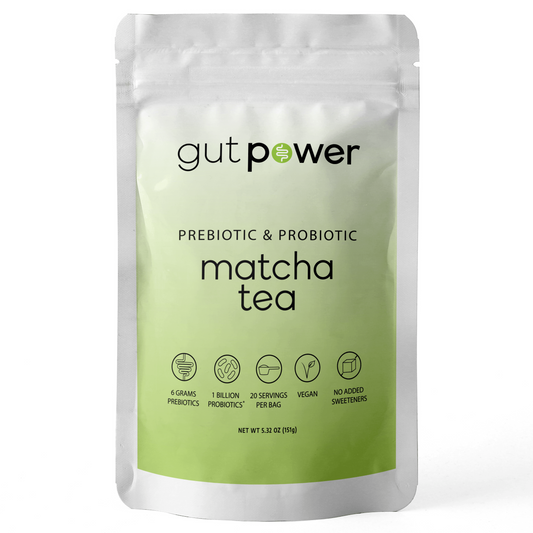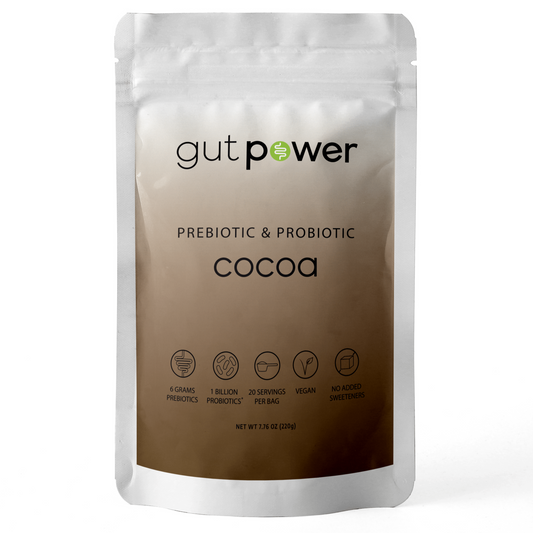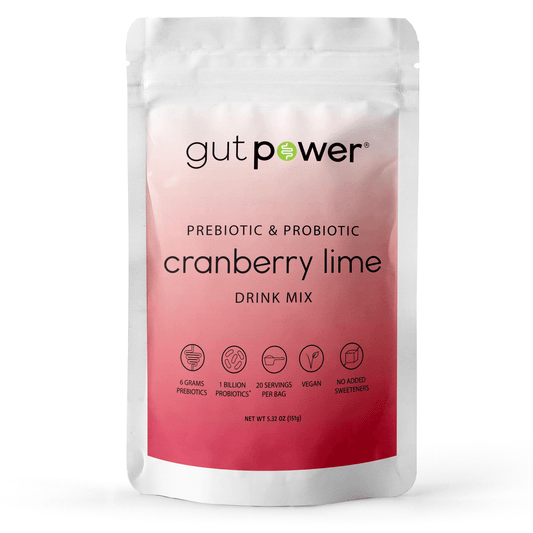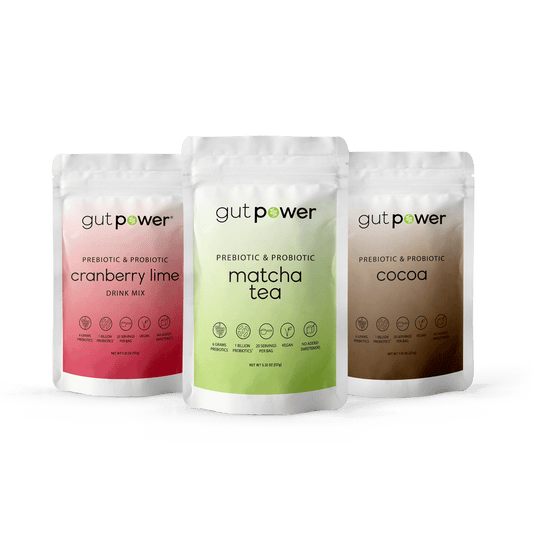Probiotics are all the rage when it comes to digestive health. But when you’re dealing with digestive issues like SIBO (small intestinal bacterial overgrowth), are SIBO probiotics the right choice?
Let’s dive in.
What is SIBO?
Before we dive into the topic of SIBO probiotics, it probably makes sense to understand exactly what SIBO is.
SIBO stands for Small Intestinal Bacterial Overgrowth -- and it’s pretty much exactly what it sounds like!
The majority of your gut bacteria are meant to live in your large intestine, where they have very important functions, like helping you to digest your food, create vitamins, regulate your immune system, and more.
But sometimes that bacteria gets displaced and works its way into the small intestine, where it doesn’t belong. (Normally, the small intestine is relatively sterile, meaning it hosts a much lower amount of bacteria than the large intestine.)
In the small intestine, this displaced bacteria tends to overgrow, causing -- you guessed it -- small intestinal bacterial overgrowth or “SIBO.”
SIBO Symptoms
Now, when bacteria make their way into the small intestine and cause an overgrowth there, this can lead to all sorts of uncomfortable digestive symptoms. SIBO is highly associated with Irritable Bowel Syndrome (IBS), and by looking at the SIBO symptoms below, you can see why! Just about every symptom of IBS is also a SIBO symptom.
SIBO symptoms include:
- Bloating
- Excessive gas
- Abdominal pain
- Burping
- Diarrhea
- Constipation
The small intestine is also responsible for a number of functions including nutrient absorption and the overgrowth of bacteria here can interfere with these processes, leading to nutrient deficiencies.
All in all, the overgrowth of bacteria in the small intestine can cause a lot of problems, including pesky digestive problems and nutrient deficiencies -- not good!
SIBO Testing
So how do you know if you have SIBO? Well, taking a SIBO test with your healthcare practitioner is often the first step.
The SIBO breath test helps to identify gases being produced by overgrowing bacteria; if there is too much gas being produced, it is a sign that there is too much bacteria in the small intestine.
However, no SIBO test is perfect. And in fact, SIBO tests have been under scrutiny for their accuracy and many practitioners instead choose to treat SIBO empirically with antibiotics or SIBO herbal treatments rather than testing.
If you think you might have SIBO, it’s important to seek care with a healthcare practitioner -- they will be able to help you decide whether taking a SIBO test is appropriate for you.
SIBO Treatment
The goal of SIBO treatment is to rid the small intestine of overgrowing bacteria.
SIBO treatments include antibiotics like rifaximin and neomycin or SIBO herbal treatments like oregano oil and/or berberine, among others.
Whether you choose the pharmaceutical or herbal route, SIBO treatment aims to lower the amount of bacteria in the small intestine.
SIBO Probiotics: Yay or Nay?
Given that SIBO treatment relies on getting rid of bacteria in the small intestine, it’s understandable to think that adding bacteria in the form of probiotics might not be the best idea.
So are the best probiotics for SIBO no probiotics at all?
Research says otherwise.
Current research asserts that consuming probiotics is actually beneficial for SIBO patients. Science hasn’t confidently confirmed why supplementing with probiotics lowers bacteria in the small intestine and improves SIBO symptoms - however, evidence shows that it does.
SIBO Probiotics: The Evidence
A study by the Indian Journal of Medical Research, for example, compared two groups of SIBO patients’ responses to a treatment protocol. One group incorporated probiotics in their regimen, and the control group did not.
Six months following treatment, 99% of patients in the group that incorporated probiotics tested negative for SIBO; only 67% of patients in the group that did not incorporate probiotics saw the same result.
It’s important to note that this study’s sample size was quite small, but still very encouraging data nonetheless.
More substantial evidence comes from a meta-analysis and systematic review (a study that compiles and analyzes the results of several studies) by the Journal of Clinical Gastroenterology.
The analysis examined 18 studies that evaluated the efficacy of treating SIBO with probiotics. The researchers calculated the overall value of probiotic use in SIBO treatment by comparing groups that included probiotics in their treatment to control groups.
By combining data from different studies looking at the effect of SIBO probiotics, researchers found that probiotics alone were 53.2% effective in treating SIBO -- this is comparable to the efficacy of antibiotics alone (51.1%).
However, when SIBO probiotics were combined with antibiotic treatment, the decontamination rate (the rate at which SIBO was cleared) was a whopping 85.8%.
This means that combining SIBO probiotics with antibiotic treatment may be the best SIBO treatment available, as it is 85.8% effective -- better than SIBO probiotics alone (53.2%) OR antibiotics alone (51.1%).
In addition to being more effective at clearing SIBO, taking SIBO probiotics also tended to reduce SIBO symptoms, specifically abdominal pain.
By taking a SIBO probiotic along with a prescribed treatment, you may be helping to clear SIBO more effectively in addition to improving your symptoms.
The Takeaway: SIBO Probiotics May be Very Helpful
Though they may not be an adequate treatment alone, taking SIBO probiotics may accelerate your healing process by helping to clear bacteria in the small intestine and improving SIBO symptoms.
It may be advantageous to use SIBO probiotics in conjunction with a prescribed treatment.





